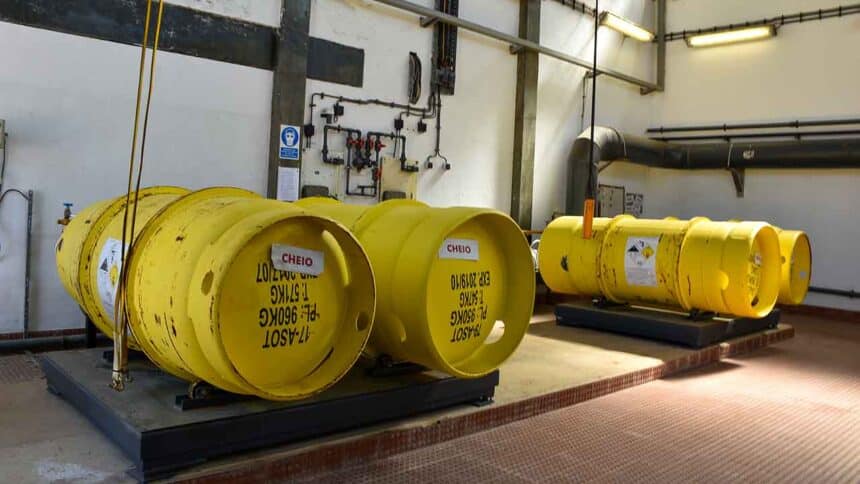Sustainable Water Platform underscores arguments government is ignoring
PAS, the Algarve-based Sustainable Water Platform, has come out today reiterating all the arguments against the plan for what has now developed into a €108 million desalination plant (more than double the initial estimate) to be located off one of Albufeira’s most iconic beaches.
Stating “unequivocally” that the project, benefiting from around €90 million in PRR (Plan for Recovery and Resilience) funding (money from the European Commission to help countries recover from the effects of the pandemic*), is a bad decision that actually jeopardises the region’s future, the movement made up of NGOs and private citizens ticks-off every single negative that authorities have doggedly refused to accept.
The project: “is an inefficient decision because, at its maximum water production, it will produce 6.8% of the region’s total annual consumption, around 236.5 hm3 (20% of the 34% of urban consumption) when currently an average of 30% of water is lost in the Algarve’s urban distribution networks.
- will be an economic waste because it diverts money that should be spent on effective solutions, such as rehabilitating water supply networks, installing technologies for detecting and localising leaks, monitoring and maintaining water losses, and making use of treated wastewater.
- will be detrimental to local fishing and tourism because it will reduce the quantity and quality of fish, as well as the quality of seawater, and will de-characterise and disfigure the natural landscape of Falésia beach, an iconic area on the Algarve coast.
- will be a high environmental cost because the chemical pollution caused by the discharge of brine mixed with organic substances and heavy metals will have irreversible effects on marine life.
- will be a major environmental loss because it will involve intervention on the cliff faces, with a danger of collapse, serious impacts on the Ria Formosa Natural Park, the Ribeira de Quarteira Special Conservation Area, the Algarve Reef Marine Natural Park – Pedra do Valado and the Quarteira artificial reefs.
- will also require significant energy consumption, around 85% of which will be fossil fuels, with a subsequent increase in carbon emissions into the atmosphere.
- is a missed opportunity for the government to make a difference by solving the problem of water resources in the Algarve by reprogramming the PRR, directing funding towards solving the problem of water losses in the distribution network and towards reuse and ApR (treatment of wastewater) .
“Desalination should be a solution of last resort, which is clearly not the case here. Instead, the decision now taken to go ahead with the EDAMA (Estação de Dessalinização de Água do Mar do Algarve – desalination station for water from the sea of the Algarve) process will create new economic, social and environmental problems that we will bequeath to future generations.
“PAS believes that the way forward to avoid water scarcity is not to increase supply, but to carefully manage the resource and implement structural actions, in line with the specific recommendation made to Portugal by the European Council on 19 June 2024.
Brussels, 19.6.2024 COM(2024) 622 final Recommendation for a COUNCIL RECOMMENDATION on the economic, social, employment, structural and budgetary policies of Portugal – “Improve water management to strengthen adaptation to the effects of climate change and ensure long-term economic and environmental resilience, by putting in place a strategy for integrated and sustainable water management, developing its governance structure, promoting investments in wastewater collection and treatment, leaks reduction and water monitoring, while developing naturebased solutions and water body rehabilitation, and improving water efficiency and water reuse”
“Thus, priority actions would be to create favourable conditions for an increase in rainfall and water retention in the territory, increase water efficiency and promote the rational use of water and water reuse, promoting a sustainable water management model that avoids aggravating existing economic, social and environmental problems”.
In short, the platform insists: “this mega-infrastructure jeopardises the future of the region and the people of the Algarve”.
None of this is ‘new’: PAS has been saying as much for years; private opponents have already taken out legal action (PAS also has a legal process underway) and this week a group of foreigners based in Albufeira has announced it will be taking the situation to the European Parliament on November 12, precisely because it too has tried to lay out all the negatives at play only to find them dismissed, out of hand.
“Let’s see how the European rules of environmental protection apply to Portugal”, says Alisa Scutt, leading the Albufeira initiative.
Meantime, a very small, almost passing comment, by Maria da Graça Carvalho, Minister of the Environment and Energy to Expresso this week, is causing some bafflement: in an article on the subject generally of water, she tells her interviewer that the Council of Ministers has approved a ‘decreto-lei’ (decree law) that “impedes judicial embargoes (providências cautelares) from halting works in PRR projects”. She explains that if judicial embargoes were allowed to take effect “it would be very difficult to complete the works”.
A judicial source has told the Resident that if there is indeed a decreto-lei to this effect, it would be unconstitutional: these embargoes are necessary instruments, sanctioned by a judge. To ride over them, for the sake of a timeline, would make a mockery of the whole process.
*PAS and other opponents to this plan have always maintained that were it not for the promise of PRR funding, the desalination plan would never have seen the light of day.




















